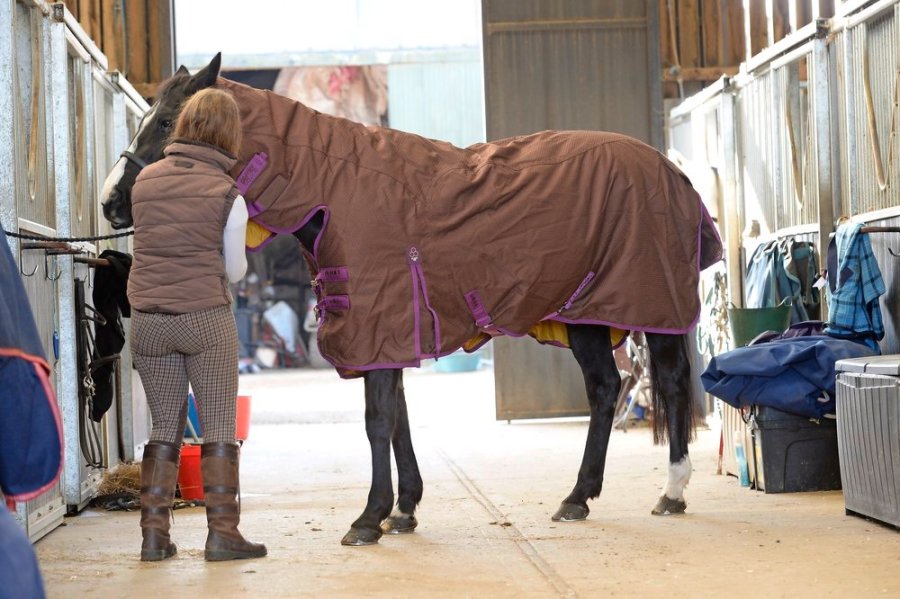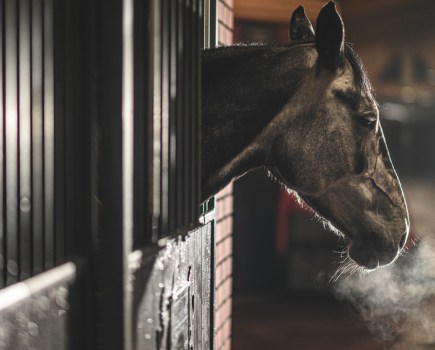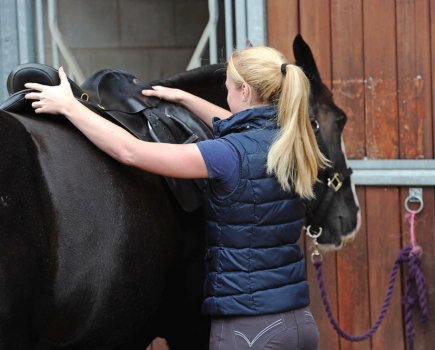Elderly horses can always do with an extra bit of TLC, particularly when the temperature drops during the colder months. So we asked Redwings Horse Sanctuary vet Nicky Jarvis for her best tips for top veteran vitality.
Cold weather can take its toll on the older horse, so making sure he’s in tip-top condition is important.
Regular vet and dental check‑ups will help keep him in good nick, but as Nicky Jarvis explains, how you manage your veteran’s care routine will depend on his overall condition.
“A horse’s age doesn’t decree a style of management” says Nicky. “Ask yourself if your horse is prone to putting on weight or losing it; that will determine how you manage him during the winter and beyond. There are always certain expectations that because your horse is older he has to have extra feeds in the winter, or he has to wear a heavy turnout rug to keep warm, but every older horse is different, so you need to cater for the individual.”
A horse’s condition doesn’t just refer to his bodyweight, it’s looking at how he moves, his ability to chew his hay, the shininess to his coat and how well he is in himself. Once you’ve carried out your condition checks, you can make adjustments to his lifestyle to help make him feel more comfortable.
Add in more fibre
You should be feeding your older horse hay for as long as he can manage it,” says Nicky. “However, if he’s struggling to chew it, that puts him at risk of choke or colic and you need to get fibre down him in a different way.”
Most older horses need a healthy fibre intake to avoid weight loss. Ideally, his forage source should come from the grass or his haynet, but if your horse is finding it hard to chew, then giving him chopped fibre or pelleted fibre also works.
Your horse may even benefit from high-fibre cubes, such as High Fibre Cubes
“Just like with humans, s horses age the state of his teeth deteriorates,” says Nicky. “Older horses often have gaps form in between their teeth, which makes it easier for food to get wedged in. Grinding hay also becomes harder as their enamel ridges
wear down and the surfaces of the teeth become smooth.”
If you’re unsure about the state of your horse’s teeth then book an appointment with your vet or qualified equine dental technician to assess what mechanics he has. That way you’ll know what you should be feeding him and if you should consider adjusting the type of forage he gets. You might end up needing to give him chopped or pelleted fibre, which is easier for him to chew, or provide him with tepid water rather than ice-cold.
Add oil
For the older horses, adding
oil to their feed can be a useful tool to keep weight on and
help add a gleam to their coats.
“Vegetable, soya and corn liver oil are all great because they’re energy dense,” Nicky explains. “But oils need to be introduced slowly over the course of two to three weeks. If you add a lot of oil in one go, your horse will probably retaliate by spitting his feed out. You need to start by adding a teaspoon at a time and then work up to two to three cups.”
Speak to your vet or equine nutritionist if feeding more than one
cup of oil a day as Vitamin E is required as an anti-oxidant.
Keep him snug
“A horse’s coat acts as an insulator during the colder months,” says Nicky. “Older horses find
it hard to keep warm in the winter, so often they’ll need a rug on when they’re turned out
to help them maintain condition.”
At the other end of the spectrum, heavier horses with long hairy coats won’t necessarily need a rug. “It all depends on the individual horse. Rugging up unnecessarily can even lead to weight gain and it’s important to remember that eating will help to keep him warm too. Excess weight will put extra strain on already arthritic joints and can lead to other serious issues.

For all the horse care products you need. Visit here
Don’t miss the latest issue of Your Horse Magazine, jam-packed with training and veterinary advice, horse-care tips and the latest equestrian products available on shop shelves, on sale now.








